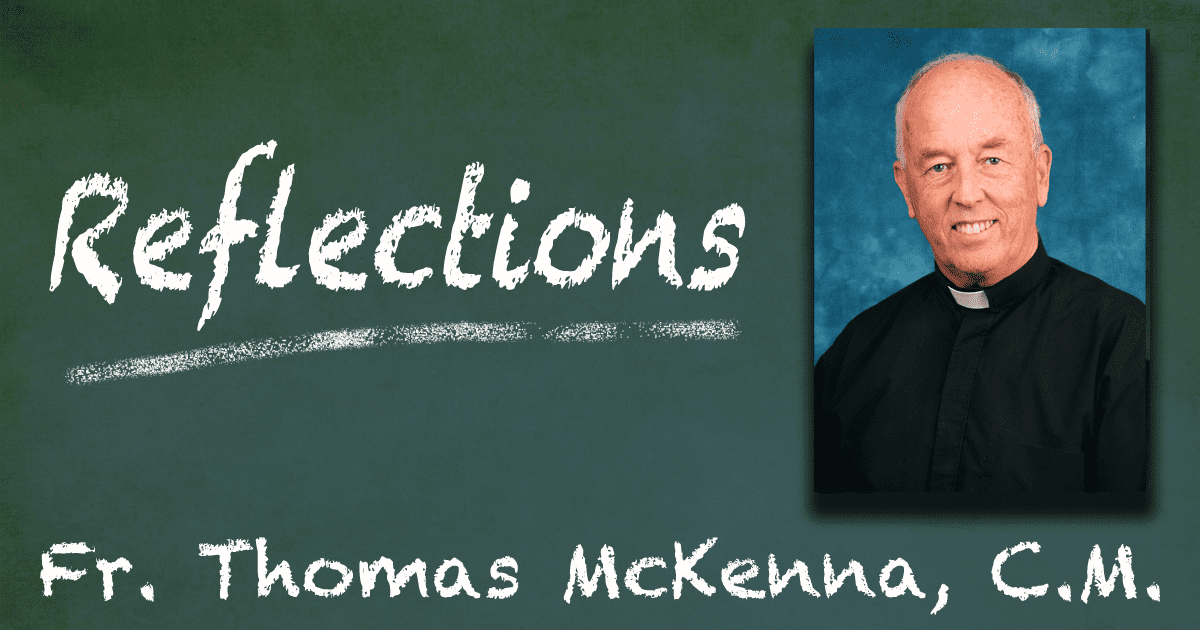Many years ago as an ROTC cadet in college, I was instructed about a certain quality thought highly desirable in a military officer. It was called “command presence” and referred not to the bars on your shoulder but to your whole bearing, your way of being present. Such a person elicits respect, makes you pay attention (stand at attention), react as if there was someone of substance in the room.
I come back to this term because it’s helped me to understand a certain puzzling phrase in the Scriptures, “Fear of the Lord.” Among many other places, we hear it in Ps 128, “Blessed is the one who fears the Lord.” At first glance, it can connote terror, cowering in the face of a tyrant, being frightened and wanting to back away. But the biblical sense of it is a good deal more positive with its connotation of “reverencing,” realizing I’m in the presence of greatness, solidity, unspeakable goodness. “God” is not just another word, but rather the designation of the overflowing reality at the heart of everything. It’s a word that has us bowing before something unfathomable – no matter how many fathoms down you go, there’s forever more and more depth. This is a presence that commands not just respect, but praise and adoration – and, in the person of Jesus, everlasting gratitude for the life he pours out in love for us.
Given this reverential stance, you would expect most all the realities we connect with God to be given analogous respect and credibility. Things like the tabernacle on the altar which holds the body and blood of Our Lord — not just command presence but what we know as “the real presence.” And you would presume the same to be true of the worldwide Church itself, giving it the benefit of the doubt as solid, trustworthy, and reliable.
But as Church history sadly and tragically tells us, that presumption often enough has not held up. There have been times when sinfulness rather than grace rose to the surface and seriously strained the trust of the faithful.
Unhappily, we live in one of those times. The clergy abuse scandal has been a blow to this presumption of respect for the Church, particularly with the recent report about the former cardinal, Theodore McCarrick, and the higher-ups in the Church who didn’t act on information about his blameworthy behavior. Behind that word “scandal” stands the image of a half-hidden stone in the road that trips up a traveler. That stumbling and falling is what many today, especially the victims of the abuse, are feeling. How can believers begin to stand up again and rebuild respect for the Church?
Certainly, making excuses doesn’t help, things like citing the same kinds of things occurring in other organizations. Nor is the hurt taken away by the many new safeguards adopted, for instance putting lay men and women on the clergy review boards and making bishops more accountable. This has been a betrayal of major proportions and its effects will last for at least a generation. Where to turn to retrieve some of that lost trust?
A place to start is at the Church’s very foundation. One part of that is our Church membership, not any one believer but the totality of its members, saints and sinners. This would include not just its leadership but the millions who reliably worship and who, along with those in our Vincentian Family, reach out to the least of the sisters and brothers. Our Church Body — taken as a whole and mystically united to Christ’s Body — is one pillar for that building.
A still firmer rock on which to stand we know is the Lord Jesus himself, here among us right now in his Spirit. Very few have touched down to this bedrock more expressively than St. Paul, who in a crisis time sends this letter to the Church in, of all places, Rome. “What will separate us from the love of Christ? Will anguish, or distress, or persecution, or famine, or nakedness, or peril, or the sword? For I am convinced that neither death, nor life, nor angels, nor principalities, nor present things, nor future things, nor powers, nor height, nor depth, nor any other creature will be able to separate us from the love of God in Christ Jesus our Lord.” Rom 8:35,38-39
Paul is sensing and leaning back on this presence, this “Real” Presence. He is depending on this strengthening and encircling closeness we know as God’s love for us and for God’s Church. And with his first-person awareness of so many of these threatening forces, Paul nonetheless calls all of us to “keep on keeping on” with our trust in the Divine nearness, our reliance on God’s loving, healing presence to us, our Mother and Father, Church.








0 Comments